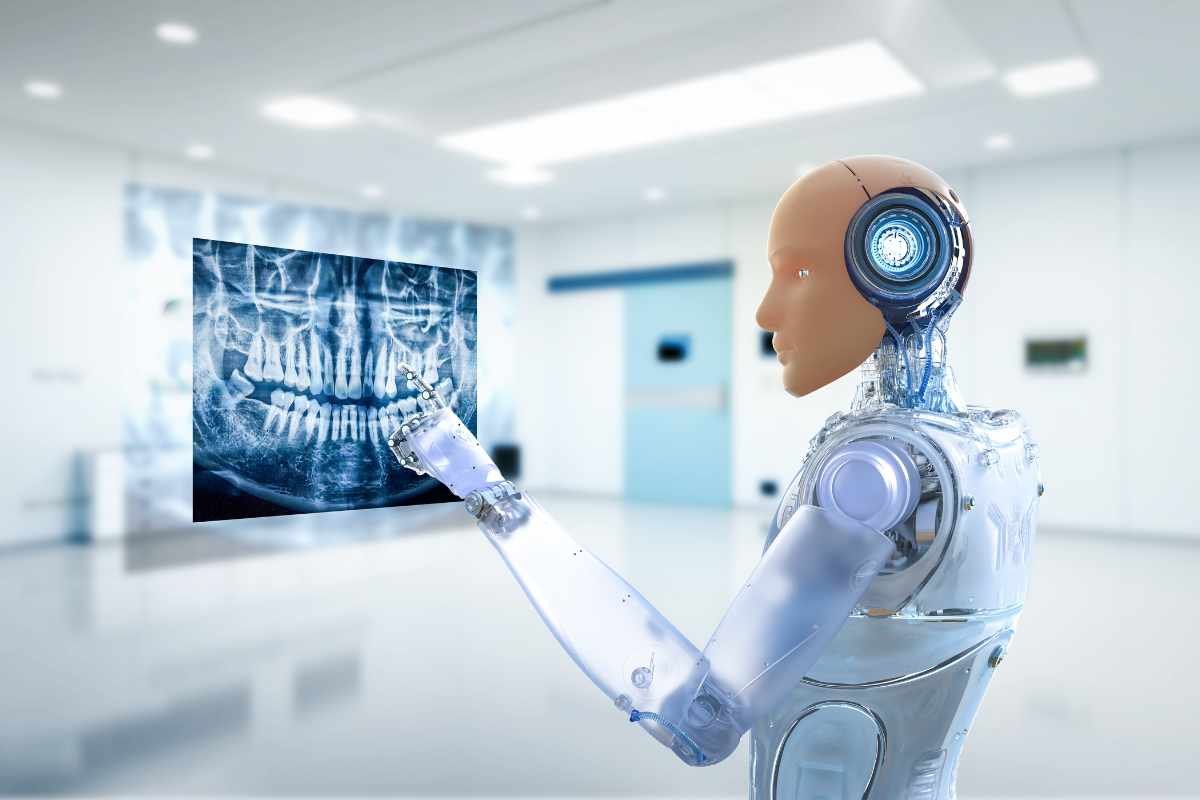The United States government’s total public debt has risen recently. The spike is so significant that some experts are expecting a US debt ceiling breach. And if the violation occurs, it will have a catastrophic impact that will be felt in different sectors, including healthcare.
Speaking of Artificial Intelligence is transforming healthcare, the US and other nations have witnessed significant strides recently, thanks to artificial intelligence.
Here are must-know advancements of Artificial Intelligence is Transforming Healthcare:
1. Enhanced Clinical Decision Making
Artificial Intelligence is transforming healthcare professionals’ capabilities and enhances patient outcomes, improving clinical decision-making.
Take medical imaging analysis as an example. Today, with AI-powered tools and machine learning algorithms, medical experts can analyze many medical images like CT scans and MRIs and generate accurate diagnoses in record time. And that plays a transformative role by encouraging timely interventions and optimizing patient care.
Additionally, AI is also making a splash in clinical support systems. How? Health experts now use AI-powered solutions to analyze patient data (lab results, genetic information, electronic health records, etc.) and tailor personalized treatment recommendations.
2. Improved Diagnosis and Treatment
AI has also revolutionized diagnostic and treatment processes in healthcare in various ways. First, it has made it possible for practitioners and other experts to analyze sizable amounts of data and identify discernible patterns quickly. Rapid diagnosis alone is crucial in promoting timely treatment, increasing the chances of recovery, and improving a patient’s quality of life.

Artificial Intelligence is transforming healthcare experts to make accurate diagnoses and isolate the best treatment options. Proper diagnosis is an indispensable aspect because, without it, patients and caregivers often waste precious time and resources on the wrong courses of treatment. Moreover, diagnostic errors are risky because they are associated with many adverse outcomes, including patient harm.
An excellent example of AI’s impact on diagnosis and treatments concerns pathology. Pathologists use AI algorithms to examine tissue samples and analyze digitized slides in this modern world. Artificial Intelligence is transforming healthcare professionals to identify abnormalities more efficiently and accurately.
3. Predictive Analytics and Early Intervention
Predictive analytics has many uses in healthcare. Experts are using analytics in different areas, ranging from clinical research and drug discovery to automation of administrative processes in hospitals. On the other hand, early intervention ensures patients have access to support and treatment as soon as practitioners notice the first symptoms of a health issue.
The good news is AI is enabling and improving predictive analytics and early intervention. For instance, when it comes to predictive analytics, experts use the technology to analyze patient data and determine if patients are at a high risk of developing life-threatening conditions like cardiovascular diseases.
Conversely, through AI algorithms and technologies like wearable devices, Artificial Intelligence is transforming healthcare providers and patients are better positioned to monitor real-time data and identify potential health risks before they aggravate.
4. Accelerated Drug Discovery
As the name suggests, drug discovery refers to a process experts use to discover new medications. It’s indispensable in different fields, including biotechnology, pharmacology, and medicine. Through drug discovery, specialists can design drugs for treating or preventing the spread of new symptoms and diseases. A good example involves the COVID-19 vaccines developed during the pandemic.
Before the advent of artificial intelligence, drug discovery took a long time. During this time, experts conducted various tests to establish a product’s safety profile. But AI has changed everything.

Since AI-powered tools can process large-scale data and generate insights quickly, they’ve accelerated drug discovery in various ways. For instance, AI algorithms are helping scientists and researchers in virtual screening, designing drugs, and predicting drug-target interactions.
The Future is Here
To summarize, AI has positively impacted various aspects of healthcare, including diagnosis, treatment, early intervention, and drug discovery. And, as technicians and researchers continue fine-tuning artificial intelligence and releasing otherworldly solutions like advanced language models, people will continue enjoying improved healthcare and services.






